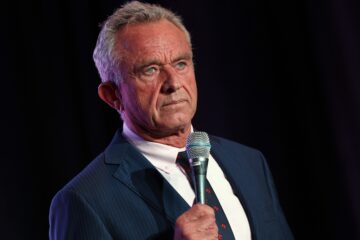By: Josh Simon, Representative of Winthrop University’s Socialist Student Union
During Black History Month, we are often taught a strict curriculum concerning the role of various black leaders and their contributions to the system in place today. What is often overlooked are the achievements of these black leaders or their beliefs when they challenge the system.
Not only are their achievements glossed over, but their entire lives or chapters of lives are glossed over in favor of a cleaner, capitalist friendly version of history. One of the figures least friendly to the capitalist retelling of black history is Huey Newton and his efforts in building socialism as part of the Black Panther Party. One lasting contribution of this party was its Ten-Point Program, a manifesto for the demands of radical black socialists during the 20th century.
Huey Newton was born to poor sharecroppers in Monroe, LA but migrated with his family early in life to Oakland, Calif. as part of a general migration of Black families out of the South to escape poor conditions. Monroe was specifically known for its high rate of anti-Black violence and lynchings. After graduating high school, Newton attended Merritt College becoming involved with local politics by joining the African American Association (AAA) and becoming influential within the college’s Phi Beta Sigma chapter.
It was during this time that Newton began his study of political literature. He regularly cited Plato’s Republic as being of particular importance to his political development but was also an avid reader of Karl Marx, Vladimir Lenin, Franz Fanon, and Mao Zedong. It was also during this time that Newton would meet Bobby Seale. In October 1966, they co-founded the Black Panther Party for Self-Defense (BPP), soon having chapters across the country.
Contrary to popular belief, the BPP was not a Black supremacist or separatist organization. While there were various peoples of various opinions, this new party was based on principles Newton called “revolutionary humanism,” and was dedicated to the cause of Black militancy for the purpose of self-defense as well as socialism. The BPP was dedicated to making Black communities safe and more politically organized.
For this purpose, the BPP had two strategies: the betterment of Black social conditions and political struggle against racist capitalism. For the former goal, the BPP instituted Survival Programs. Along with distributing food such as in the Free Breakfast for Children program, the BPP also instituted programs to help the disabled community, offered community health classes, set up schools for children, provided assistance for those with substance abuse problems, and many more. The BPP also advocated for Black self-defense leading to the party starting a police patrol program in which armed BPP members would keep an eye on police in black communities to prevent police brutality before it happened.
The overall aim of the BPP was to have a self-sufficient and politically strong, organized Black community. While this was to be achieved (in the spirit of Malcolm X) by any means necessary, it was considered infeasible to meet the demands of the Black community via capitalism. The BPP then turned towards socialism as an alternative. Socialism not only identifies the issues of class conflict within capitalism, but argues for an alternative based around community organization and using political power for the betterment of the people.
The view that the United States and its incarnation of capitalism was incompatible with Black freedom led to the creation of the BPP’s Ten–Point Program also in October of 1966. The program put forward ten reasonable political demands: the self-determination of Black people, full employment, “an end to the robbery by the capitalists of our Black community,” decent housing, truthful education about Black history, exemption of Black men from military service, an immediate end to police brutality, freedom for all Black men held in prisons, for Black people to be tried by a jury of their peers from their community, and the last demand being a reiteration of the need for “land, bread, housing, education, clothing, and peace.”
All ten of these demands reflect the specific needs of the Black community during this time, but all focus generally shifts towards the realization of policies that went against the interests of capitalist white supremacy. The first demand declares that “Black people will not be free until we are able to determine our destiny”, which summarizes the BPP’s general position. It establishes that Black people in America have never been allowed to determine their own destiny, including whether or not they wished to be part of America in the first place.
The right to self-determination is one which has been guaranteed to many ethnic groups acting in service of US policy, but has never been granted to Black people who never chose to be in America to begin with but are a crucial element to its foundation. The BPP does not argue here for the separation of Black people from the US, but the opportunity for the Black community to pursue goals within its own interests rather than for the interests of white capitalism.
When representatives of the working class get together and formulate demands, they often ask for the same things. Indeed the final demand of “land, bread, housing, education, clothing, and peace,” is reminiscent of the Russian revolutionary slogan of “peace, land, and bread.” A Latino organization called the Young Lords allied itself with the BPP on the same grounds. The Young Lords released a 13 point program calling for the self-determination of Latinos, “community control of our institutions and land,” true education on the culture and language of Latinos, freedom for all political prisoners, etc. In all three cases, the subtext of “by any means necessary” reamined poignant throughout. The BPP advocated that “all Black people should arm themselves for self- defense”, while the Young Lords declared that “armed self-defense and armed struggle are the only means to liberation,” and the Russian revolutionaries established the first socialist government by arming themselves and revolting against the Tsarist dictatorship.
Many of the BPP’s continuously relevant demands have yet to come true while the Black community is still very much in need of them. As such, we should continue to fight for these demands, Black liberation, and a socialist future.



